The problem of prescription drug abuse is one that touches almost everyone in some way. Millions of Americans have abused prescription drugs and are at risk of becoming addicted or even of having a fatal overdose. Teens are particularly vulnerable and don’t always understand the dangers associated with prescriptions. Teens today are abusing prescription drugs in greater numbers than any other age group. Learn how to keep your teen safe in the face of this epidemic.
Which Drugs Are Teens Abusing?
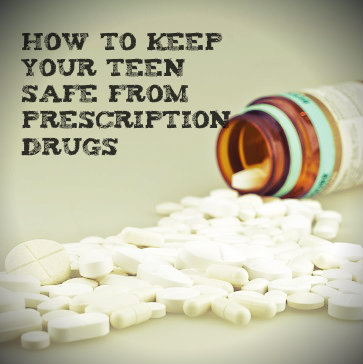 Teens are abusing prescription painkillers in record numbers. These are narcotic controlled substances and are highly addictive and easy to overdose on. In the last 20 years, the number of people between the ages of 12 and 17 that abuse these painkillers has increased ten-fold. No teen demographic is excluded from these statistics. Teens from all socioeconomic backgrounds, of all races, and of both genders are abusing painkillers.
Teens are abusing prescription painkillers in record numbers. These are narcotic controlled substances and are highly addictive and easy to overdose on. In the last 20 years, the number of people between the ages of 12 and 17 that abuse these painkillers has increased ten-fold. No teen demographic is excluded from these statistics. Teens from all socioeconomic backgrounds, of all races, and of both genders are abusing painkillers.
The other category of prescription drugs being abused by teens is stimulants. Stimulant medications are typically amphetamines prescribed for children with attention deficit hyperactivity disorder, or ADHD. Teens abuse them mostly as study aids. They have the effect of keeping the user awake and allowing for more focus and concentration. In a competitive academic world, many teens turn to these drugs to get better grades. The risks are high, of course, and include addiction, long-term health consequences and overdose.
How Can I Keep My Teen Safe From Prescription Drugs?
One of the scariest aspects of the trend in teen prescription drug abuse is that parents are largely unaware of the problem. As many as one in ten teens abuses stimulants, yet most parents have no idea what’s going on. How can you keep your teen safe when you don’t know there is a problem? The first thing you can do to protect your teen is to get to know his activities. By developing an open, communicative and trusting relationship with your teen you will be better tuned in to what is going on with him. You will be more likely to notice if something seems off, which could be attributed to drug abuse.
As you educate yourself about prescription drug abuse, also educate your teen. Knowledge is power and many teens abuse these drugs thinking that they are mostly harmless. If doctors prescribe them, sometimes even to kids, they must be safe, right? This attitude is dangerous. Learn about the risks of taking these medications without a doctor’s supervision and share what you learn with your teen.
It is also important that you minimize your teen’s access to drugs. There are many reasons teens abuse drugs, but one reason they may turn to these prescriptions more than most other substances is access. Most people abusing prescription drugs get them from a friend or family member. If anyone in your family has been prescribed a painkiller or stimulant, make sure it is kept in a secure location that your teen cannot access. Teens also get prescriptions from illegal online pharmacies that don’t check for prescriptions. Control your teen’s access to the Internet and check his history from time to time.
The problem of prescription drug abuse is a serious and ongoing one, for both adults and teens. To keep your teen safe from the epidemic of prescription abuse you need to be aware and knowledgeable. Talk to your teen and make sure he knows that he can come to you with problems. Discuss the risks of abusing drugs and restrict his access to them; take these important steps to reduce the chances that he will experiment with prescriptions.
If You Suspect Your Teen Is Abusing Prescription Drugs – Don’t Hesitate – Call Us Now!

Every day in the U.S., 105 people die as a result of drug overdoses. Both prescription medications and illicit drugs are to blame, but regardless of the cause, taking steps to reduce the number of unnecessary deaths should be a priority for lawmakers across the country.
One common legal approach to the problem is a “Good Samaritan” law, which promises legal immunity for those who notify authorities of a drug overdose in progress.
Louisiana, despite recently passing a fairly extreme sentence for repeat heroin dealers, has become the 20th state to adopt such a law, and has thereby taken a decisive step in reducing the suffering caused by drug abuse.
Louisiana’s Good Samaritan Law
There were a few changes made to the new rules at the last minute. One of these was that the individual who calls for help will have to stay in the location, and must provide his or her full name to officials upon request.
Paramedics are also allowed to carry naloxone, an antidote to opiate overdose with the potential to save lives all around the country if made widely available.
Furthermore, in a reasonable caveat to the new rule, you can’t be granted immunity if you’re the person who administered the drug that led to the problem.
Although this restriction may still lead to people not calling for help if they’re at fault, it’s clear that people who administer dangerous doses of drugs in unknown circumstances should not be granted immunity without a thorough investigation of the circumstances.
Reporting OD’s And Fear Of Police Involvement
“Research shows that the most common [reason] people cite for not calling 911 is fear of police involvement,” said Louisiana Sen. Sharon Weston Broome. This goes to the heart of the problem the Good Samaritan law was designed to address: these people need urgent care, but the fear of legal consequences delays or even prevents people on the scene from calling 911. In this sense, the law makes it clear that the priority is saving lives, and should drastically increase the proportion of cases where paramedics are able to get on the scene in time.
Louisiana’s Less-Than-Progressive Drug Laws
It’s hard to see an issue with Good Samaritan laws, as long as you’re of the opinion that people struggling with addiction don’t deserve to die because of potential legal consequences, but not all of Louisiana’s rules are underpinned by this forward-thinking philosophy. A perfect example of the more extreme laws is one passed earlier in May that set the maximum sentence for repeat heroin dealers at 99 years. The original bill called only for doubling of the penalties from five years to 10, and critics of the new law have pointed out that murderers and rapists will be in jail for less time than someone caught dealing heroin twice.
The Good Samaritan law is a step in the right direction, but after taking such a monumental step backward with the punishment for heroin dealers, it’s hard to feel as though things are really getting better in Louisiana.
Drug Laws Should Always Focus On Saving Lives
The Good Samaritan law is an excellent example of the sort of drug laws we need. At its heart, it’s about saving lives. Much of the criticism of the ongoing war on drugs revolves around its focus on punishment rather than on providing help for those in need, and for the country as a whole, the increased number of Good Samaritan laws is an undeniably positive thing.
Recently, Georgia passed a similar version of the law, and it seems inevitable that more states will follow.
The Fix’s coverage of the story includes a poignant quote from Kathy Fletcher, a woman who accidently overdosed on prescription medication: “Naloxone saved my life. It should be available to the average citizen just like the EpiPen and glucagon because it’s just as safe, and the faster we get it to people, the more [lives] we save.”
Critics of naloxone and Good Samaritan laws in general may feel as though they’re a tacit approval of drug use, as if the law were saying, “it’s OK if you’re a drug user too, we’ll ignore it if somebody is in danger” or “don’t worry if you overdose, we’re making the cure more widely available so you can survive to nearly OD again.”
This is an oversimplified, easily refutable version of the actual reason for these types of rules.
The complex issue of addiction means that we can’t just lay the blame on the drug users, punish anybody trying to save their lives, and restrict access to a potentially life-saving medication.
Because people are trapped in the cycle of addiction, unable to break free no matter how hard they try, we can’t treat them like social pariahs when they’re more in need of help than ever before. We need to swallow our moral indignation and focus on helping thosein need.
Read Our Other Addiction News Posts
Peer pressure is a powerful force. You probably remember experiencing it yourself. It can take tremendous strength of will to say no in the face of your peers urging you to do something. If you have a teenage son or daughter, remembering what peer pressure was like might keep you up at night. The good news is that you have the potential to be the most powerful influence in the lives of your children. If you take the time to help your teen understand the dangers of risky behaviors, keep open communication and get to know your teen, you can help her successfully resist peer pressure.
What Is the Role of Peer Pressure in Adolescence?
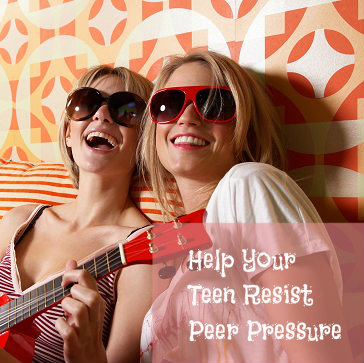 It turns out that peer pressure is normal and that it’s not always a negative thing. Teens are learning how to become adults by learning how to fit in with peers. While always conforming to the standards of others is not good, neither is standing out all the time. To grow into adults that contribute in meaningful ways, teens need to learn to strike a balance. They need to fit into social groups while also learning to make their own decisions.
It turns out that peer pressure is normal and that it’s not always a negative thing. Teens are learning how to become adults by learning how to fit in with peers. While always conforming to the standards of others is not good, neither is standing out all the time. To grow into adults that contribute in meaningful ways, teens need to learn to strike a balance. They need to fit into social groups while also learning to make their own decisions.
We tend to think of peer pressure among teens as always leading to dangerous behaviors, such as having sex, trying drugs, drinking or shoplifting. These are the sorts of incidences in which peer pressure is negative. On the other hand, your teen may be pressured by friends to go out when she is feeling down after a breakup, or they may pressure her to join extracurricular activities with them. These are positive pressures. If you can help your teen to understand the difference between positive and negative peer pressure, she will start to make better choices.
How Can You Help Your Teen Recognize And Resist Negative Pressure?
Your teen’s ability to recognize what is right and what is wrong begins with you. By sharing and demonstrating your own values, you pass them down her. If you talk to your teen about what you expect of her and what you value, your influence will be more important than that of her peers. It can be easy to lose sight of this fact during the teen years. The time your child spends with her friends can make you begin to feel as if your opinions no longer matter, but it isn’t true.
Sharing your values with your child will help her to recognize the difference between positive and negative peer pressure, but she also needs to be able to resist the latter. One of the most important things to do is to cultivate open lines of communication. When your teen knows that she can talk to you, she will bring her issues to you for discussion. If you don’t know that she is experiencing peer pressure, you can’t help her.
When you do talk to your teen about what is troubling her, give her suggestions for how to say no. Encourage her to stick with friends who have the same values. There is strength in numbers. Cultivate her self-esteem so that she feels confident being assertive in pressure-filled situations. Self-esteem comes from being able to accomplish goals and by being good at things, so encourage her to get involved in activities she enjoys and is good at. This could be sports teams, academic clubs, theater groups or any other healthy activity.
Peer pressure may be a powerful force, but good parenting is even stronger. Develop a good relationship with your teen that involves open communication and you will help her resist making bad choices based on pressure from her peers.
Learn More About How To Combat Peer Pressure
05 Mar 2014
FDA Announces Plans To Limit Acetaminophen Use
The Food and Drug Administration (FDA) has asked healthcare professionals to stop prescribing high doses of the painkiller acetaminophen, which is used in Tylenol, Vicodin and Percocet.
The FDA hopes to reduce liver damage in patients taking high doses. Because many drugs contain acetaminophen, the chances of an inadvertent overdose for someone taking several different prescriptions are likely and very dangerous. Acetaminophen overdose is the leading cause of acute liver failure.
How Drug Makers And Pharmacists Will Be Affected
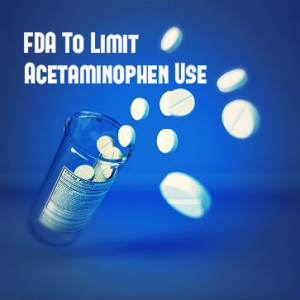 Drug makers are also being asked to consider limiting the amount of acetaminophen in prescription drugs to 325 milligrams or less per pill. Over half of drug makers have agreed. Another step the FDA has taken is recommending pharmacists who receive multiple prescriptions from doctors that, when combined, contain more than 325mg of acetaminophen per dose, contact the doctor who prescribed it and discuss other options.
Drug makers are also being asked to consider limiting the amount of acetaminophen in prescription drugs to 325 milligrams or less per pill. Over half of drug makers have agreed. Another step the FDA has taken is recommending pharmacists who receive multiple prescriptions from doctors that, when combined, contain more than 325mg of acetaminophen per dose, contact the doctor who prescribed it and discuss other options.
Are Over The Counter Drugs Included In FDA’s Limit Of Acetaminophen?
The FDA is also attempting to make drug makers take any drugs containing more than 325 mg of acetaminophen off the market. The warning issued by the FDA does not apply to Tylenol and other over the counter drugs… for now.
Acetaminophen And Alcohol – Dangerous Combination
The FDA explained there is no available data to show that more than 325 mg of acetaminophen provides additional benefits, but it does increase the risk of liver problems. When combined with alcohol, the effects of acetaminophen are even more dangerous. They also report that acetaminophen has been known to cause life-threatening skin reactions, including blisters, serious rashes and the detachment of the upper surface of the skin.
Preventing Acetaminophen Overdose
To decrease chances of overdose, individuals taking pain medications and other medications should read the labels of their prescriptions. The FDA maximum recommendation for adults is no more than 4,000 mg of acetaminophen a day.
Read More On The FDA Urges Public To Beware Of Phony Adderall Sold On The Internet
04 Feb 2014
How Is Your Drinking Impacting Your Kids?
You don’t have to be an alcoholic for your drinking to have a negative impact on your children. When you drink too much, there are numerous ways in which your children are affected. You are shaping their attitudes toward alcohol and drinking, but you also may become a different person when you drink. Your shifting moods, your time devoted to drinking, your use of alcohol to temper your emotions; all of these impact your children.
Does My Drinking Determine If My Child Will Drink?
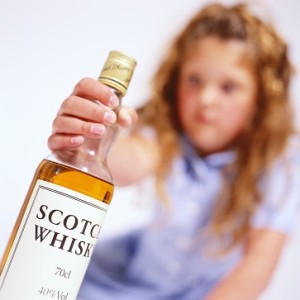 Everything you do and say helps to shape your child’s outlook on life and how he relates to the world. What you do—your actions—are far more impactful than what you say. If you lecture your children on the importance of drinking in moderation and then regularly go off the deep end with your own drinking, the latter is what they really notice.
Everything you do and say helps to shape your child’s outlook on life and how he relates to the world. What you do—your actions—are far more impactful than what you say. If you lecture your children on the importance of drinking in moderation and then regularly go off the deep end with your own drinking, the latter is what they really notice.
According to research, the best way to positively impact your children’s future drinking habits is to limit their exposure to alcohol. When you demonstrate that drinking excessively is fun and normal, your children will most likely adopt the same attitude.
Does My Drinking Affect My Children Emotionally?
Your drinking can have a strong impact on the emotional states of your children. A wide range of feelings are stirred up in your children when you have had too much to drink: embarrassment, sadness, anger and perhaps worst of all, helplessness. When you drink too much, you get out of control, whether you are a happy or a hostile drunk. Your children will notice this and feel helpless to do anything about your inevitable mood shift.
Your drinking may also cause your children to feel stressed and worried. They might be concerned that you will drive drunk, that you’ll get hurt or even that you will hurt them when your mood turns sour. They may worry and become stressed when they see you begin to drink, wondering if you will have too much this time and hoping that you will remain in control and limit yourself better. The way your drinking makes your children feel can leak into all aspects of their lives. They may end up feeling depressed or anxious at school, embarrassed to have their friends over to the house or always afraid of you when you have a drink in your hand.
How Can I Limit The Harm My Drinking Causes?
Out of control and excessive drinking are what impact children so negatively. You need not be an alcoholic to have these effects on your children, but you also do not need to abstain entirely from drinking to ensure they are safe and happy. To limit the harm your drinking causes, limit your drinking. Demonstrate to your children a healthy relationship with alcohol. Don’t drink so much that you lose control or to get tipsy. Limit the number of nights that you have a drink. When you drink reasonably, you model a good attitude toward alcohol.
Another important aspect of normal drinking is to avoid turning to alcohol to cope with stress or other emotions. Emotional drinking is a slippery slope that can lead to problem drinking. Instead, model for your children healthy ways to cope with stress. Use exercise, relaxation techniques, and hobbies to cope with negative emotions.
If you do mess up and drink too much in front of your kids, or end up with a hangover, sit your kids down to talk about it. Open discussions about alcohol will help your kids. They will feel like they can talk to you and open up about what concerns them. Your actions will always have an impact on your children; whether that impact is positive or negative is up to you.
Find Out If Alcohol Is Ruining Your Life With These Simple Questions
03 Feb 2014
How To Have The Marijuana Talk With Your Child
Marijuana is in the news a lot these days. Nearly half of all states have legalized medical marijuana. Two states now allow for recreational use of the drug. And yet, this substance is still illegal across the country according to federal law. There are many contradictions and confusions related to cannabis. Is it safe to use? Can it really help treat illnesses? When your child starts asking these questions, be sure you have the right answers. And consider having a talk about this controversial subject before your child gets the wrong answers at school.
Is Marijuana Safe?
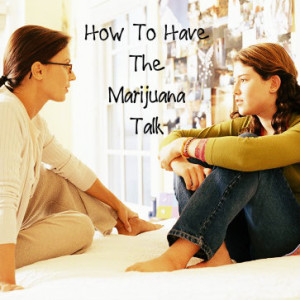 Attitudes regarding marijuana have shifted considerably in this country. As legalization for marijuana has occurred, many people have begun to assume that the drug must be safe. If it is considered a medicine, and is prescribed by doctors, it must be safe to use is a common misconception that you should correct for your child.
Attitudes regarding marijuana have shifted considerably in this country. As legalization for marijuana has occurred, many people have begun to assume that the drug must be safe. If it is considered a medicine, and is prescribed by doctors, it must be safe to use is a common misconception that you should correct for your child.
Marijuana is safer than many other drugs, but emphasize to your child that there are risks associated with using it. Smoking marijuana leads to impaired thinking and coordination, memory problems, and distorted perceptions in the short term. It can also cause paranoia, depression and anxiety. Using marijuana also increases the risk of having a heart attack and of developing a respiratory problem.
What Is Medical Marijuana?
Medical marijuana is no different from the drug that people use recreationally. It is simply marijuana that is prescribed by doctors to patients. Medical marijuana is most often smoked, but can also be consumed. Marijuana can be used to ease the symptoms of chemotherapy for cancer patients and those that are struggling with HIV and AIDS. It also helps people with the eye disease glaucoma and with multiple sclerosis. Chronic pain caused by any condition can be relieved by marijuana use.
Is Marijuana Addictive?
Another misconception that your child may have about this drug is that it is not addictive. The truth is that it does have the potential to lead to dependence, although the risk is much less than other substances, like cocaine, heroin, and even tobacco and alcohol. Make sure your child understands that addiction is always a risk when using a mind-altering substance.
Can You Get In Trouble For Using Marijuana?
Be sure that your child understands very clearly that even in states where marijuana has been decriminalized to any extent that it is illegal everywhere for anyone under the age of 21 to use marijuana. The exception to this rule is if a young person has a medical need for the drug. Just because marijuana is becoming legal in some places does not mean that teenagers can use the drug without consequences.
Isn’t Everyone Smoking Marijuana?…Maybe Not
The prevalence of marijuana in public discussion may make your child feel as if everyone is using this drug. It is important for your child to understand that this is not true. The vast majority of people, adults and teens, choose not to use marijuana. Among teenagers, fewer than eight percent report using the drug in the past month. Among people of all ages, this number drops to seven percent. The perception that everyone is doing something is powerful, so emphasize to your child that this is not the case with marijuana.
Provide The Answers About Marijuana Before Your Child Asks
Talking to your child about drugs is important and could be life-saving. With marijuana in the public consciousness and with perceived risk so low among young people, it is crucial that you have the answers your child needs to hear. Don’t wait for him to ask you. Start the conversation now and be sure that your child hears about this drug from you and not from his peers.
Read More About Why You Should Believe That Marijuana Is Dangerous
Almost without exception, alcoholics are tortured by loneliness. Even before our drinking got bad and people cut us off, nearly all of us suffered the feeling that we didn’t quite belong. Either we were shy, and dared not draw near others. Or we were noisy good fellows constantly craving attention and companionship, but rarely getting it. There was always this mysterious barrier we could neither surmount nor understand.” (A.A. Twelve Steps and Twelve Traditions, 57)
The Isolation Of The Addict
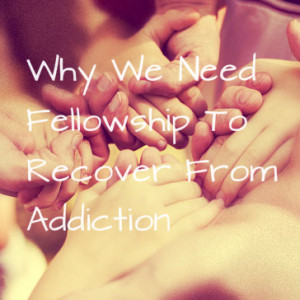 Isolation and addiction go hand in hand. Even if we were out every night and closing down the bars, surrounded by hordes of people, we felt somehow lonely. It wasn’t the presence of people we lacked, but relationship. In addiction we were confused about who we were and afraid to know our true selves. We used our addictions to hide from ourselves and to try to be the people we thought we wanted to be. Yet we suspected we didn’t belong and were quite certain that if people knew who we really were, they’d reject us. The loneliness was profound.
Isolation and addiction go hand in hand. Even if we were out every night and closing down the bars, surrounded by hordes of people, we felt somehow lonely. It wasn’t the presence of people we lacked, but relationship. In addiction we were confused about who we were and afraid to know our true selves. We used our addictions to hide from ourselves and to try to be the people we thought we wanted to be. Yet we suspected we didn’t belong and were quite certain that if people knew who we really were, they’d reject us. The loneliness was profound.
Fellowship: The Antidote To Isolation
The 12-Step Program is designed to begin bringing us out of isolation. That doesn’t mean simply throwing us in a room with a bunch of other drunks and junkies, it means helping us to know ourselves in ways we never had. As we work the Steps we learn to see ourselves honestly and we begin cultivating a real relationship with that self. We grow in humility and we lose our fear of rejection. Through the working of the Steps we are cleaning up the wreckage of the past and seeking to live well in the present by practicing the program principles in all of our affairs.
Meeting Fellowship Encourages Sobriety
Our isolation perpetuated our addiction. To recover, we do our part to begin breaking the secrecy that allowed our addiction to control our lives. The meeting is the place where we start this process. Knowing we are among those who have walked similar paths, we begin to feel comfortable opening up and being real. The meeting is a safe place where we won’t be judged or ostracized. There we find a system of support—people who are personally invested in our sobriety and wellbeing.
Cultivating Fellowship For Recovery
We can, of course, go through the motions without ever going deeper than surface level with our program fellows. But this only jeopardizes sobriety. We all need time to acclimate to the 12-Step life and we may not be ready to have complete strangers prying into our business, but we have to be moving in the direction of relationship. How?
By being intentional. The program recommends picking up the phone and talking with other members—ideally three a day. These don’t have to be profound conversations, but one day they will be. It’s an exercise in breaking down isolation and overcoming the fear of people. We don’t show up to the meeting late or duck out early. We force ourselves to interact. We take a sponsor and set up a schedule of regular interaction. We meet with other fellows in coffee shops to talk about the program. We serve. And we remember that coming out of isolation is one of the best secrets to lasting sobriety.
Life takes on new meaning in A.A. To watch people recover, to see them help others, to watch loneliness vanish, to see a fellowship grow up about you, to have a host of friends—this is an experience you must not miss.” (Alcoholics Anonymous, 89)
Read More About Starting Over And Embracing Life In Recovery
We all have those voices in our heads—the critic, the tempter, the downer, the voices telling us we’ve never been anything and we shouldn’t even try. But in order to want sobriety and progress in recovery, we need to learn to silence the voices of opposition. But how do you get past the voices in your head that keep you in dysfunctional and destructive patterns?
Identify The Negative Voices
 It helps to begin by identifying the messages flying around in your head. Whose voice is the one that you hear most strongly and loudly in your mind? Who is the one, though you are an adult, who is still criticizing you and tearing you down and insisting you conform to his or her way of life, dysfunctional as it may be? Listen to what you hear when you think you need to take a drink or get high. Who or what is controlling you without your permission?
It helps to begin by identifying the messages flying around in your head. Whose voice is the one that you hear most strongly and loudly in your mind? Who is the one, though you are an adult, who is still criticizing you and tearing you down and insisting you conform to his or her way of life, dysfunctional as it may be? Listen to what you hear when you think you need to take a drink or get high. Who or what is controlling you without your permission?
Parents’ voices ring in our ears though they may be long dead. Through their words and actions they imposed their view of the world, relationships and love when we were in our youngest and most impressionable and vulnerable stages of life. We took that input at face value. We didn’t question if it was right or wrong or sane. And today, as adults, many of us are still living our lives guided by those dysfunctional, damaging beliefs.
Or maybe it was a harsh coach or teacher or a relentless sibling or school bully. Without realizing it we are still hearing these critical and insulting voices in our heads. We are still subconsciously dominated by the people whose opinion we may not even respect and whose approval we no longer covet. We need to begin to set ourselves free of these mental tyrants.
How To Let Go And Live For Ourselves
How do we learn to let go of others’ perceptions of the world? How do we live for ourselves rather than for the whims of some undefined them? We do it by beginning to intentionally perceive our own world. How do we think about things? What do we think we are capable of, regardless of what others have told us? What do we want out of life? What are the things we believe are most worth living for and pursuing? As an adult, you have the freedom to make your own decisions, have your own opinions and live in a way that is pleasing and healthy for you. What does that look like?
One woman, in a loving relationship with a man, was afraid to express her needs or her emotions for fear of being a burden. Her partner, however, didn’t view her emotions as anything other than valid and worthy of consideration and discussion. Still she feared being the “difficult woman” because of how her father viewed women and their needs and the way he conceptualized their motives as self-serving. But this experience was her father’s, not a universal truth about women and men.
As she grew up and desired to have a healthy and functional romantic relationship, she realized that she would need to put her father’s perceptions and prejudices about the world and relationships out of her mind in order to experience the world and her life as her own. Her father’s experience was not hers; she was not a demanding woman or self-serving. She did, however have emotions and needs that her partner was healthy enough to want to honor. She learned that not all women were self-serving or demanding and that not all men viewed them that way.
Evaluate What’s Helpful And What’s Not
As we progress through life and we see our frequent hang-ups, and the beliefs that don’t serve us, we have to begin to ask whose voice it is that we are hearing. Who is motivating the feelings of fear and apprehension we feel? Is it a parent telling you that you’ll never have what it takes? Or that you have never been good enough? Is it a competitive sibling making fun of your interests and talents? Is it a judgmental “friend” who was only trying to give you some helpful advice?
It is time to begin to evaluate that which is not helpful and then to let it go so that you may live free—free to determine your own life, free to recover and free to recognize and realize your own potential. How many of us drank or practiced our addictions because we couldn’t stand ourselves and needed an escape from our own reality? Or because we didn’t believe ourselves worthy of much better than playing out our lives as drunks and just getting by? Identifying the negative voices supporting those damaging beliefs can help us to see that we have been living a lie and are indeed worthy of so much more.
How Therapy Can Help
These life-controlling beliefs are deeply ingrained and they are hard to overcome—in many cases therapy may even be helpful in figuring out where the roots lie. Between our 12-step work and therapy, we gain the tools to uproot those old beliefs and toss them onto the compost pile. Your mind is your own; don’t give it over to the voices that only seek to tear you down. Live the victorious life that was meant for you.
Read More About Hope In Recovery


